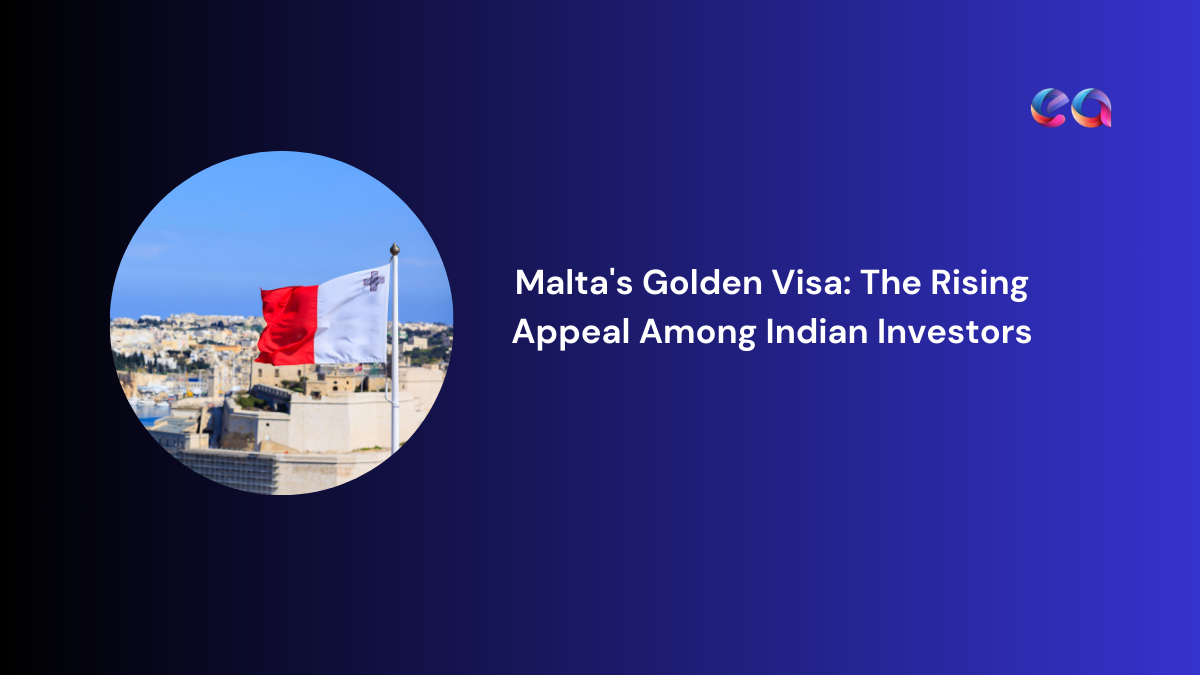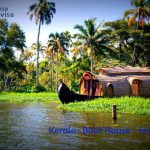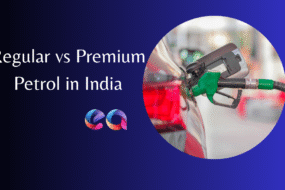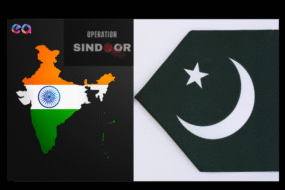
The allure of European residency and citizenship has witnessed a significant surge in interest among India’s high-net-worth individuals (HNWIs). As global opportunities expand and the desire for greater international mobility grows, many Indian investors are exploring avenues for securing a foothold in Europe. Among the various residency and citizenship by investment programs available, Malta’s Golden Visa, encompassing both its Permanent Residence Programme (MPRP) and Citizenship by Naturalization for Exceptional Services (CES), has emerged as a particularly popular choice. This growing preference is driven by a combination of strategic advantages offered by the Mediterranean island nation, catering to the specific needs and aspirations of the Indian investor community.
Residency and citizenship by investment programs, often referred to as “Golden Visas,” provide a legitimate pathway for affluent individuals from around the world to obtain the right to live, and in some cases become citizens of, a host country in exchange for making a substantial financial contribution. For individuals hailing from countries with passports that offer limited visa-free access to global destinations, these programs present an attractive solution to enhance their international mobility. In the context of India, where the passport’s global ranking necessitates visas for numerous desirable countries, the prospect of acquiring residency or citizenship in a European nation like Malta, which offers significantly broader travel freedom, holds considerable appeal. Malta offers two primary routes for Indian investors: the Malta Permanent Residence Programme (MPRP) and the Citizenship by Naturalization for Exceptional Services (CES), the latter having replaced the Malta Individual Investor Programme (MIIP) in 2020 with more stringent requirements. Understanding the nuances of each program is crucial to appreciating why Malta has become a favored destination for Indian investors seeking a gateway to Europe. The increasing inclination of Indian HNWIs towards Malta’s Golden Visa is not arbitrary; it is a direct response to the tangible benefits these programs offer in terms of enhanced global mobility and access to a stable and prosperous European nation. The strategic evolution of Malta’s investment migration framework, evidenced by the transition from the MIIP to the more rigorous CES program, underscores a commitment to attracting investors who are not only financially robust but also aligned with Malta’s long-term interests and international standing.
Table of Contents
Understanding Malta’s Residency and Citizenship by Investment Programs
The Malta Permanent Residence Programme (MPRP): Requirements, Benefits, and Process
The Malta Permanent Residence Programme (MPRP) offers a clear and structured pathway for non-EU, non-EEA, and non-Swiss nationals, including Indian citizens, to obtain the right to reside permanently in Malta. To be eligible for this program, applicants must be at least 18 years of age, demonstrate stable and regular financial resources sufficient to maintain themselves and their dependents without relying on Malta’s social assistance system, and possess capital assets of not less than €500,000, of which a minimum of €150,000 must be in the form of financial assets, or show capital assets of not less than €650,000, of which €75,000 must be in financial assets. Furthermore, applicants must have a clean criminal record and not pose any potential threat to Malta’s national security, public policy, public health, or public interest; they also cannot hail from sanctioned countries.
The MPRP offers several investment options to qualify for permanent residency. Applicants can either purchase a property in Malta or Gozo with a minimum value of €375,000 or rent a property for a minimum of €14,000 per year in Malta or Gozo. In addition to the property investment, there are government contributions required: €30,000 if purchasing a property or €60,000 if leasing. A non-refundable administrative fee of €50,000 is also mandatory, along with a donation of €2,000 to a local philanthropic, cultural, scientific, artistic, sport, or animal welfare NGO registered with the Commissioner of Voluntary Organisations. Moreover, a fee of €10,000 is payable for each dependent included in the application.
Obtaining Malta Permanent Residence through the MPRP comes with a range of significant benefits. Residents have the right to settle, stay, and reside permanently in Malta. They also enjoy visa-free travel across the Schengen area for 90 days out of any 180-day period. Beneficiaries have the flexibility to lease property to meet the program requirements. Notably, the program allows for the inclusion of up to four generations in a single application, making it particularly appealing to families. Furthermore, permanent residents gain access to Malta’s high-quality education and healthcare systems, on par with Maltese citizens.
The application process for the MPRP, for applications submitted from January 1, 2025, requires applicants to go through a Licensed Agent. The process involves a rigorous four-tier due diligence process conducted by the Residency Malta Agency to ensure that only fit-and-proper individuals and families obtain Maltese permanent residency. While the exact timeline can vary, the processing time for the MPRP is generally between 6 to 12 months. A key requirement is that the qualifying property, whether purchased or rented, must be held for a minimum period of five years after obtaining permanent residence, after which a residential address is still required. The financial threshold for the MPRP ensures that the program attracts individuals who are economically self-sufficient and unlikely to strain Malta’s social welfare resources. The program’s inclusive nature, allowing multiple generations to be part of the application, directly resonates with the strong familial values prevalent in Indian society. The opportunity for visa-free travel within the Schengen area is a significant advantage for Indian applicants, offering enhanced mobility for business and leisure.
The Citizenship by Naturalization for Exceptional Services (CES): Requirements, Benefits, and Process
The Citizenship by Naturalization for Exceptional Services (CES) program, also formally known as the Maltese Citizenship by Naturalisation for Exceptional Services by Direct Investment (MEIN) procedures, was introduced in November 2020, replacing the Malta Individual Investor Programme (MIIP) which concluded in 2020. The CES program has implemented stricter requirements, including more rigorous due diligence checks and longer residency obligations.
To be eligible for Maltese citizenship under the CES program, applicants must be at least 18 years old, be in good health with global health insurance coverage of at least €30,000, and have a clean criminal record. All applicants aged 12 and over are required to undergo and pass strict background checks conducted by the Community Malta Agency (CMA). Applicants must not have been previously denied a visa to any country with a visa waiver agreement with Malta and must not be considered a national security or reputation risk. Furthermore, individuals who are citizens of, reside in, conduct business in, or have significant ties to Afghanistan, Belarus, Democratic Republic of Congo, Iran, North Korea, Russia, or Yemen are ineligible. Similarly, applicants holding citizenship from a country on the US travel ban list are also excluded.
The CES program requires a substantial financial investment. Applicants must make a significant contribution to the National Development and Social Fund: €600,000 for a 36-month residency route or €750,000 for a 12-month fast-track option. Additionally, a mandatory property investment is required, which can be either the purchase of a residential property in Malta valued at a minimum of €700,000, which must be retained for at least five years, or leasing a property for a minimum annual rent of €16,000, also to be maintained for five years. A non-refundable philanthropic donation of at least €10,000 to a registered Maltese non-governmental organization is also mandatory. An additional fee of €50,000 is required for each dependent family member included in the citizenship application.
Obtaining Maltese citizenship through the CES program offers an extensive array of benefits. As citizens of Malta, individuals become EU citizens, granting them the right to live, work, and study in any of the 27 EU member states. Maltese passport holders enjoy visa-free travel to over 180 countries worldwide, including the entire Schengen Area, the UK, and potentially the US and Canada. Citizens also gain access to Malta’s high-quality education and healthcare facilities. Furthermore, Maltese citizenship can be passed on to future generations, providing long-term security and benefits for the family. Malta allows dual citizenship, which is a significant advantage for Indian applicants who may wish to retain their original nationality.
The application process for the CES program is divided into four stages: Residency Application, Eligibility for Citizenship, Citizenship, and Naturalisation. The first step involves applying for a Maltese residence card, during which the main applicant and dependents undergo due diligence checks by the CMA. The main applicant must secure an address in Malta and provide biometric data during a visit to the country. Within 12 months of receiving the residency card, the main applicant submits an eligibility application to the CMA, which conducts a comprehensive four-tier due diligence check. If successful, the applicant receives a Letter of Approval in Principle, allowing them to apply for citizenship after completing the chosen 12- or 36-month residency period. The final citizenship application is submitted after the required residency period, followed by a final due diligence check by the CMA. Upon approval, citizenship is officially granted, and the final step involves taking the Oath of Allegiance in Malta. The entire process, depending on the chosen residency route, can take between 1 to 3 years, plus additional time for application consideration. The significant financial investment associated with the CES program reflects the premium benefits it offers, particularly the full rights of EU citizenship and extensive global travel freedom. The mandatory residency period and the emphasis on demonstrating a genuine link with Malta aim to ensure that successful applicants have more than just a transactional connection with the country. The allowance of dual citizenship caters specifically to the needs of international investors from countries like India, where dual nationality is generally not permitted.
Key Factors Driving the Popularity Among Indian Applicants
A primary driver behind the increasing popularity of Malta’s Golden Visa programs among Indian applicants is the significant enhancement in global mobility and the seamless access to the Schengen Area that they offer. Compared to the Indian passport, which provides visa-free access to approximately 60 countries, Maltese citizenship grants visa-free travel to over 180 destinations, including the European Union, the UK, and potentially the US and Canada. For Indian investors and business professionals who frequently travel internationally, this dramatic increase in mobility is a substantial advantage, saving time and simplifying travel arrangements.
Both the MPRP and the CES program provide access to the Schengen Area, a zone comprising 27 European countries where internal border controls have been abolished. While permanent residents under the MPRP can travel visa-free within the Schengen Area for up to 90 days in any 180-day period , Maltese citizens enjoy the right to live, work, and study in any Schengen country without any such restrictions. This seamless access to a large and economically significant bloc of European nations offers considerable benefits for business expansion, tourism, and personal travel. The ease of conducting business within the EU’s single market and the opportunity to explore diverse European cultures and landscapes without the constant need for visa applications are powerful incentives for Indian applicants. The consistent emphasis on Schengen access as a key benefit across various sources underscores its high value for Indian investors seeking European residency or citizenship. The ability to move freely within Europe for business and leisure, without the bureaucratic hurdles of visa applications, is a significant draw, particularly for those with international business interests or a passion for European travel.
Quality of Life, Education, and Healthcare in Malta
Malta offers a high quality of life that is particularly appealing to Indian applicants. The island nation boasts a pleasant Mediterranean climate with mild winters and warm summers, making it an attractive year-round destination. Malta is also known for its safety and political stability, with low crime rates compared to other European countries. A significant advantage for Indian applicants is the widespread use of English as one of Malta’s official languages, which facilitates communication and integration into Maltese society.
For families with children, the quality of the Maltese education system is a crucial factor. The system is based on the British structure, with a range of reputable public and private schools and universities offering high standards of education. This familiarity with the British education model can be particularly comforting for Indian families seeking international educational opportunities for their children.
Malta also has a well-regarded healthcare system. It operates a universal healthcare model, ensuring that both citizens and permanent residents have access to free or subsidized medical care through the government-funded system. The World Health Organization recognizes Malta’s healthcare services for their efficiency and high standards. This access to quality healthcare is a significant benefit for individuals and families considering long-term residency or citizenship in Malta. The combination of a comfortable lifestyle, good educational institutions, and a robust healthcare system creates a compelling overall appeal for Indian families looking to enhance their quality of life in Europe. The ease of integration due to the English language further simplifies the transition and makes Malta a welcoming destination.
Business and Investment Opportunities in a Stable Economy
Malta offers a stable and growing economy, making it an attractive location for business and investment. Its strategic location in the center of the Mediterranean Sea positions it as a bridge between Europe and other continents, providing access to the European Union’s economic area, which is highly beneficial for investors from India. Malta has a thriving property market that offers potential for high returns, and the country’s focus on innovation and entrepreneurship creates a favorable business environment.
One of the significant advantages for HNWIs is Malta’s tax regime, particularly its non-domiciled tax scheme. Under this system, individuals who are deemed tax residents in Malta (by spending at least 183 days there) are generally taxed only on income arising in Malta and income arising abroad that is remitted to Malta. They are not typically taxed on their global income or worldwide assets, which can offer substantial tax efficiency for international investors.
Historically, there have been strong and growing business ties between India and Malta. The Maltese government has actively encouraged Indian firms to invest in Malta, offering various incentives and signing bilateral trade agreements, such as the one for the avoidance of double taxation. This commitment to fostering economic relationships with India makes Malta an even more appealing destination for Indian entrepreneurs and investors looking to establish a presence in Europe. Malta’s stable economy, strategic location, and attractive tax benefits create a favorable environment for Indian businesses seeking to expand into the European Union. The established Indian community and the strong bilateral relations further enhance Malta’s appeal as a business-friendly destination for Indian investors.
Family Inclusion and Long-Term Security
Both the Malta Permanent Residence Programme (MPRP) and the Citizenship by Naturalization for Exceptional Services (CES) program are designed to be family-inclusive, allowing the main applicant to include their spouse, children (with age limits varying), and dependent parents and grandparents in the application. This is a significant factor for Indian families, where often the entire family unit is considered when making decisions about relocation or obtaining a second residency or citizenship. The ability to include multiple generations in one application, as offered by the MPRP, is particularly attractive in the Indian cultural context where extended family ties are strong.
Obtaining permanent residency or citizenship in an EU member state like Malta provides long-term security and stability for investors and their families. In an increasingly interconnected and sometimes volatile world, having the option of a safe haven in a politically and economically stable European nation offers peace of mind. Under the CES program, Maltese citizenship can be passed on to future generations, ensuring long-term benefits and security for the entire family lineage. This generational aspect adds significant value for Indian families looking to secure the future of their descendants. The focus on family inclusion in Malta’s programs directly aligns with the values of many Indian applicants, who often prioritize the well-being and future of their entire family. The long-term security and stability offered by an EU member state further enhance the appeal of Malta as a destination for investment migration.
Strong Bilateral Relations and Cultural Comfort
The strong and long-standing diplomatic relations between India and Malta contribute to the latter’s popularity among Indian applicants. India was among the first nations to recognize Malta’s independence, and the two countries have maintained warm and amicable ties since. This positive bilateral relationship fosters an atmosphere of mutual respect and trust, potentially making the migration process smoother and interactions with local authorities more seamless for Indian citizens.
Malta has a well-established Indian community, estimated to be around 5000 people. This presence of a familiar community can provide invaluable support, cultural familiarity, and a sense of belonging for new arrivals from India, easing their integration into Maltese society. Furthermore, as mentioned earlier, English is one of Malta’s official languages, and it is widely spoken throughout the islands. This eliminates a significant language barrier for Indian applicants, making communication and daily life much easier compared to countries where English is not widely spoken. The combination of strong diplomatic ties, a supportive Indian community, and the prevalence of the English language creates a comfortable and welcoming environment for Indian investors and their families in Malta.
Malta’s Golden Visa in Comparison: How it Stacks Up Against Other European Options for Indian Investors
When considering European residency or citizenship by investment programs, Indian investors often compare Malta’s offerings with those of other popular destinations such as Portugal, Greece, and previously Spain. Each of these countries offers unique terms and financial thresholds that may appeal to different investors.
In terms of investment thresholds, Malta’s MPRP requires a property investment starting at €375,000 (or €14,000 annual rent) plus government contributions and fees. Portugal has offered more diverse options, including investment funds from €250,000, job creation, and research activities. Greece has primarily focused on real estate investment, with a minimum of €250,000 (though increasing in prime areas). Spain’s once popular Golden Visa program, which required a real estate investment of €500,000, has now ended for new applications via this route as of April 3, 2025. Malta’s CES program demands a significantly higher investment, starting at €600,000 in contributions plus property investment/rental and donation.
Processing times also vary. Malta’s MPRP generally takes between 6 to 12 months. Portugal’s Golden Visa has faced backlogs and can take up to 24 months. Greece offers a relatively quick processing time of around 6 months. Spain’s processing was also relatively fast, around 2-3 months, but this is no longer relevant for new real estate-based applications. Malta’s CES program is more involved and can take over a year to complete.
The pathways to citizenship differ significantly. Malta’s MPRP leads to permanent residency, with the possibility of applying for naturalization after a significant period of actual residence (around 7 years). Malta’s CES program offers a direct route to EU citizenship within 1 to 3 years, depending on the investment. Portugal offers a path to citizenship after 5 years of legal residency. Greece requires 7 years of actual residence for citizenship. Spain has a longer requirement of 10 years of residency for citizenship.
Other factors such as physical presence requirements also play a role. Malta’s MPRP and Greece’s Golden Visa have no mandatory stay requirements for maintaining residency, which is attractive to those with transnational lifestyles. Portugal requires an average stay of 7 days per year. Tax implications also vary, with Malta offering an attractive non-domiciled tax status and Portugal having its Non-Habitual Resident (NHR) program. Family inclusion policies are generally generous across these programs.
| Feature | Malta MPRP | Malta CES | Portugal Golden Visa | Greece Golden Visa | Spain Golden Visa (Ended April 3, 2025 for Real Estate) |
|---|---|---|---|---|---|
| Minimum Investment | €375k property purchase or €14k/year rental + fees | €600k/€750k contribution + €700k property or €16k/year rental + fees | From €250k (Investment Funds) | €250k+ Real Estate (increasing in prime areas) | €500k Real Estate |
| Processing Time | 6-12 months | Over 1 year | Up to 24 months | Around 6 months | 2-3 months |
| Physical Presence Required | None | Minimal (for residency and oath) | Average 7 days/year | None | None |
| Pathway to Citizenship | Naturalization after approx. 7 years of residence | 1-3 years | After 5 years of residency | After 7 years of actual residence | After 10 years of residency |
| Key Benefits for Indians | Schengen access, family inclusion, no stay requirement | EU citizenship, extensive visa-free travel, family inclusion | Schengen access, path to citizenship, lower investment options | Schengen access, no stay requirement, lower investment threshold | Schengen access, path to citizenship |
| Tax Advantages | Non-domiciled tax regime | Non-domiciled tax regime | Non-Habitual Resident (NHR) program | Double Taxation Treaty | Non-residents taxed on Spanish-sourced income only |
Malta’s MPRP offers immediate permanent residency with a relatively lower investment compared to its CES program, making it appealing for those prioritizing long-term residence and Schengen access. The CES program, while requiring a significant investment, provides one of the fastest routes to EU citizenship for investors. The recent changes in other European Golden Visa programs might further enhance Malta’s attractiveness as a stable and consistent option.
Malta’s Efforts in Attracting Indian Investors
The Maltese government and various immigration agencies have actively engaged in marketing and outreach efforts targeting the Indian market to promote their Golden Visa programs. The government has actively encouraged Indian firms to invest in Malta, highlighting the strong bilateral relations and offering various incentives, including bilateral trade agreements like the one for the avoidance of double taxation. The presence of a significant number of private investments from India in Malta indicates some success in these endeavors.
Immigration consultants and agencies in India play a crucial role in promoting Malta’s Golden Visa programs. The numerous listed immigration consultants for Malta in major Indian cities like Delhi suggests a dedicated market and active promotion of these programs. These agencies assist Indian applicants with navigating the requirements, preparing documentation, and facilitating the application process for both the MPRP and the CES programs.
Beyond trade agreements, the strong diplomatic ties between India and Malta also foster a conducive environment for investment and migration. The historical relationship and mutual understanding between the two countries make Malta a potentially more comfortable and welcoming destination for Indian investors and their families. The active promotion by the Maltese government and the presence of numerous specialized immigration consultants in India indicate a focused effort to attract Indian HNWIs. The strengthening economic ties and the positive bilateral relations further contribute to Malta’s appeal as a destination for investment migration from India.
Conclusion: Why Malta’s Golden Visa is Becoming a Preferred Choice for Indians
Malta’s Golden Visa programs, encompassing both the Permanent Residence Programme and the Citizenship by Naturalization for Exceptional Services, are increasingly becoming a preferred choice for Indian high-net-worth individuals seeking European residency or citizenship through investment. The key advantages offered by Malta cater directly to the needs and aspirations of this demographic. The enhanced global mobility and seamless access to the Schengen Area are significant draws for Indian applicants seeking to overcome the limitations of their national passport. The high quality of life, excellent education and healthcare systems, and the widespread use of English make Malta an attractive destination for families looking to relocate or secure a second home in Europe. The stable and growing economy, coupled with attractive tax benefits, provides compelling business and investment opportunities. Furthermore, the family-inclusive nature of the programs and the long-term security offered by an EU member state are crucial factors for Indian families. The strong bilateral relations between India and Malta, along with the presence of a well-established Indian community, create a comfortable and welcoming environment.
While the investment costs associated with both programs, particularly the CES, are substantial, and the due diligence process is stringent, the comprehensive benefits often outweigh these considerations for Indian HNWIs seeking long-term global mobility and security. The availability of both a permanent residency program with a more moderate investment and a citizenship program with a higher investment allows Malta to cater to a broader range of Indian investors with different priorities and financial capacities. Malta’s unique combination of strategic advantages and benefits positions it as a prime destination for Indian investors looking for a reliable and attractive pathway to Europe.













